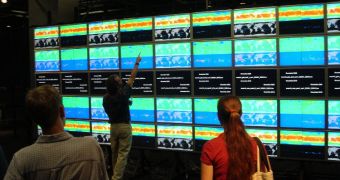One of the most significant issues plaguing the fight against global warming today is getting the severity of the situation through to the general public. Efforts to do so thus far have had only limited success, and experts are currently determining how to address this issue.
Among the most obvious reasons is that people are more inclined to listen to a politician with a loud mouth than actually bother to look for the evidence and what they imply themselves.
Another reason is that most people are not familiarized with specific terms used by experts in describing climate change and related phenomena. As such, they have a hard time understanding what studies are saying, and what the implications for that are.
Public concern needs to be very high, in order for politicians to start listening, and actually doing something for combating climate change. It's bad enough already that they are corporations' lap dogs, but maybe a public outcry could still sway some of them.
“A major challenge facing climate scientists is explaining to non-specialists the risks and uncertainties surrounding potential” climate change, scientists explain in a Perspectives editorial published today in the latest issue of the esteemed scientific journal Nature Climate Change.
“Few citizens or political leaders understand the underlying science well enough to evaluate climate-related proposals and controversies,” the authors go on to say. In the piece, they attempt to highlight communications strategies that may help in this regard.
“The goal of science communication should be to help people understand the state of the science, relevant to the decisions that they face in their private and public lives,” says author Baruch Fischhoff.
The expert, who holds an appointment as a social and decision scientist at the Carnegie Mellon University (CMU) in Pittsburgh, wrote the piece with Cardiff University environmental psychologist Nick Pidgeon.
In their article, titled “The role of social and decision sciences in communicating uncertain climate risks,” the two say that the general public needs to be offered the tools necessary to understand the uncertainties and disagreements related to climate change science.
“Communications about climate science, or any other science, should embrace the same scientific standards as the science that they are communicating,” Fischhoff believes.
“When people lack expertise, they turn to trusted sources to interpret the evidence for them. When those trusted sources are wrong, then people are misled,” the expert goes on to write.
“I think that it is good for scientists to be in contact with the public, so that they can learn about its concerns and see how well, or poorly, they are communicating their knowledge,” he argues.
“That way they can do a better job of producing and conveying the science that people need,” Fischhoff concludes.
Funds for the team's work are provided by the Decision Risk and Management Sciences program at the US National Science Foundation (NSF).

 14 DAY TRIAL //
14 DAY TRIAL //